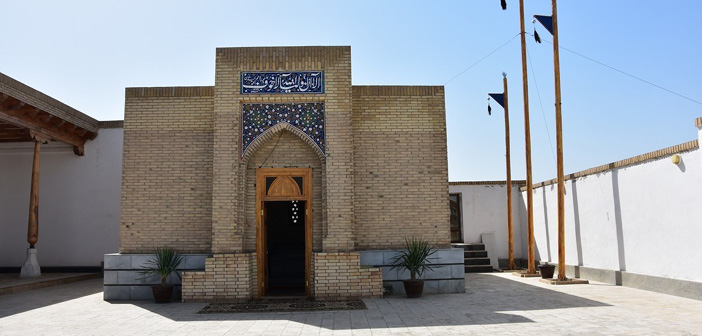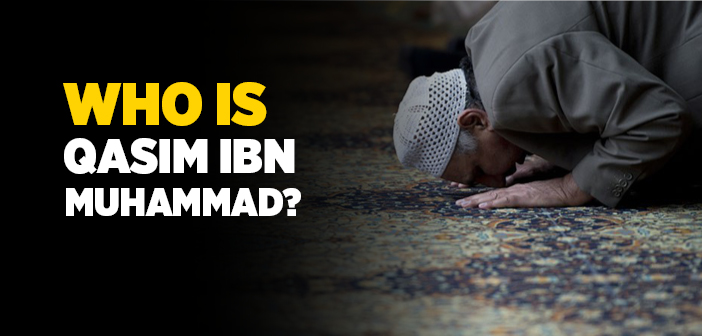Who is Ali Ramitani? What kind of person Ali Ramitani? When did Ali Ramitani live?
Ali Ramitani [d. 1315-1321]
He (may Allah have mercy on him) was born in the town of Ramitan two leagues to the north of Bukhara. He affiliated himself with Mahmud Anjir Faghnawi (may Allah have mercy on him) and completed his Sufi training under him and then became his successor. After guiding the people for a short time in the surrounds of Ramitan, he emigrated to Bavard. He had some students there. After that he went to Khwarezm and settled there[1]. For this reason he is also known as Ali Bavardi.
He is well known amongst the people of tasawwuf by the name of ‘Azizan’. According to narrations whenever he would say something that was from his own words he would begin by saying “The Azizan say:” out of humility. This is why he became famous for this title. His face was ever radiant. On the outside he was with the people, but within he was ever with Allah.
When he went to Khwarezm, Ali Ramitani (may Allah have mercy on him) introduced himself as a ‘weaver’ and was able to obtain a residency permit from the sultan through two of his disciples. Every morning in Khwarezm he would go to the labourers’ bazaar and take home one or two workers in whom he saw the potential. He would talk to them about religious and Sufi matters until the afternoon and then give them their wages and let them go.
Once they were in his presence they were unable to leave and they would return again in later days. In this way he gained many disciples in a short period of time.
Some people became apprehensive and informed the sultan saying that his throne was under threat. The sultan then asked Ramitani to leave Khwarezm. However he allowed him to stay when Ramitani showed him his residency permit, and a friendship began between them[2].
He continued to guide the people of Khwarezm and it is reported that he lived until he was 130 years old. It is estimated that he passed away in the hijri year 721 (1321 AD). His tomb is in the town of Kone Urgench, in the province of Tashauz, in the north of Turkmenistan. In addition, there is another site for his tomb in the surroundings of Bukhara.
His work called Mahbub al-Arifin is still in existence[3].
His Words of Wisdom
- “Worship is made up of ten parts, with nine of them seeking what is lawful. All other worship is this one part”[4]. The one who does not eat from what is lawful will not find the strength to obey Allah and will always rebel. The one who eats from the lawful cannot disobey Allah…”[5]
- “Where three hearts become one, the believer will have made spiritual progress:
1 – Sura Ya’sin (the heart of the Qur’an),
2 – The sincere heart of the believing servant,
3 – The heart of the night, which is the predawn[6].
- “Those who serve others, feeling grateful for being able to do so are few. If you are grateful for the opportunity of serving others coming your way and feel obliged towards those you serve, then everyone will be pleased with you and complaints about you will decrease”[7].
- “The condition of love is to act in accordance with what He consents of. The one who claims to love the Messenger of Allah (peace and blessings be upon him) must follow his way”[8].
- “Converse with Allah Most High! If you cannot converse with Him then converse with those who converse with Him”[9]. That is, keep company with the people of dhikr, the righteous and the loyal. Benefit from their state and their advice.
- “This world and the hereafter are like twin sisters. It is not possible to marry two sisters at the same time. Love of this world and love of the hereafter cannot exist together. Both the world and the hereafter are created things. In that case, how can love for both the Creator and the creation exist together”[10].
- “In accordance to the ruling of the following verse: “All good words rise to Him…” (Fatir, 35:10), in order for the bird of dhikr to rise to the elevated realm it needs two wings: one is huzur (presence), and the other is ikhlas (sincerity)”[11].
- Ali Ramitani (may Allah have mercy on him) was once asked:
“What is faith?” or “What is tasawwuf?”
He replied:
“Fasl and wasl, that is separation and then union”[12]. That is, to separate the heart from everything other than Allah and then to be together with Allah Most High[13]. In other words, it is to be freed from sin and to reach a state of taqwa and advance in it…
- When he was asked: “What is your intention in performing vocal dhikr?” Ramitani would reply:
“All of the scholars are in agreement that when a person is on their death bed they should be inculcated with the kalima-i tawheed and it is permissible for that person to utter the word in a loud voice. According to the dervishes, every breath is our last breath”[14].
- “A good friend is more important than a good job”[15].
- One time in an assembly of Ali Ramitani, one of the scholars praised him by saying:
“You are the essence, we are the mere shell”. Ramitani responded:
“The core is under the protection and support of the shell. The shell of a walnut is like the shariah, and the inside is like tariqah. If there were no shell, the walnut would rot and be destroyed. The core is in need of the shell just as the people of tasawwuf are in need of the scholars of the shariah”[16].
- “In the following verse from the Qur’an is an indication and good news: “… O you who believe. Turn to Allah every one of you, believers, so that hopefully you will have success” (Nur, 24:31)
It is an indication to repent and there is good news that the repentance will be accepted. If Allah was not to accept the repentance then He would not have commanded it. The fact that He has commanded it is an indication that He will accept it. The only condition is that the person sees their own fault…”[17].
- “We should perform good deeds…however we should not trust in our good deeds and act as if we did not perform them. In this way we can continue in our good deeds by admitting our faults and our weaknesses”[18]. (Just like our prayers, our deeds also require acceptance. This is why the servant should be in a constant state of seeking refuge with Allah).
- “Be very careful about two things: What comes out of your mouth when you speak, and what goes in when you eat”[19].
- “Pray with a sinless tongue so that your prayers can be accepted. That is, be humble in the presence of the Friends of Allah and make a place in their hearts so that they can pray for you[20].
- One day, the following line was read in the presence of Khwaja Azizan (may Allah have mercy on him):
“The lovers have two festivals at the one time”. He then said:
“No, they have three festivals”. When he was asked about the meaning of this Khwaja Azizan explained:
“This happens when the servant makes mention of Allah, Most High, once and Allah, Most High, makes mention of him twice”.
That is, Allah, Most High, first helps that person to make dhikr of Him. In this way the servant is given success in dhikr. Then Allah honours the servant by accepting his dhikr. Tawfeeq (success), dhikr and acceptance… three festivals in the one breath…”[21].
[1]. Muhammad Talib, Matlabu al Talibin, vr. 20a.[2]. Rashahat, p. 98-99.[3]. Nafisi, Tarih-i Nazm u Nasr, I, 220.[4]. Daylami, Musnad al Firdaws, III, 107/4062.[5].Rasail-i Sitta Zaruriya, Delhi 1308, p. 14.[6]. Muhammad Parsa, The talks of Muhammad Bahauddin, p. 60.[7]. Rashahat, p. 90.[8]. Erzengiî, Sharh-i Risala-i Azizan, p. 39.[9]. Erzengi, ibid, p. 2-3.[10]. Erzengi, ibid, p. 86.[11]. Ali Ramitani, Mahbubu al Arifin, (in Rasail-i Sitta-i Zaruriya), p. 11-12.[12]. Abu al Qasim, al Risalatu al Bahaiyya, vr. 49b.[13]. Erzengi, ibid, p. 146.[14]. Rashahat, p. 90.[15]. Erzengi, ibid p. 12.[16]. Erzengi, ibid p. 157, 161, 235.[17]. Rashahat, p. 92[18]. Rashahat, p. 92.[19]. Rashahat, p. 92.[20]. Rashahat, p. 94.[21]. Rashahat, p. 94.
Source: Osman Nuri Topbaş,The Golden Chain of Transmission Masters of the Naqshinandi Way, Erkam Publications





